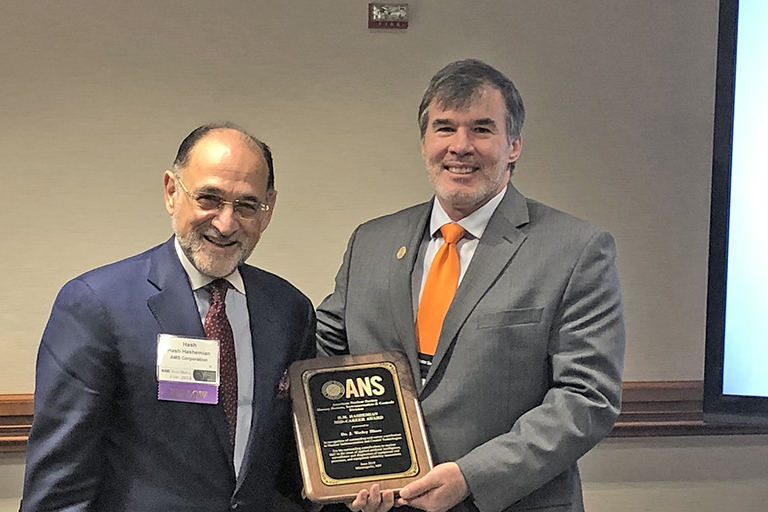
Department of Nuclear Engineering Head, Postelle Professor, and Chancellor’s Professor Wes Hines was the inaugural awardee for H.M. Hashemian Mid-Career Award from the American Nuclear Society at the ANS annual meeting. Established in 2018 by the ANS Human Factors, Instrumentation and Control Division (HFICD), this award recognizes an individual who has made a sustained significant contribution during the first 15-25 years of his or her career.
The award both recognizes an individual’s sustained outstanding contributions to fields including nuclear instrumentation and control and honors “Hash” Hashemian, a UT alum and an internationally recognized expert in nuclear instrumentation and controls and avid proponent of the future generation of nuclear scientists and engineers.
“It’s a deep honor to be recognized by the nuclear engineering community in the legacy of H.M. Hashemian,” said Hines, who also received $500 with his award. “Membership in the ANS and working with the HFICD has been an important part of my career growth and development.”
The award recipient’s work can be exemplified by either one significant achievement or a sustained effort in several engineering projects in the field of nuclear instrumentation and control, human factors engineering, or human machine interface.
The award highlights the importance of the continued contributions of the upcoming generation of nuclear scientists and engineers in future developments and breakthroughs.
Hashemian is President and CEO of Knoxville-based Analysis and Measurement Services Corporation and a recognized leader in instrumentation and control, and is a Fellow of ANS and Institute of Electrical and Electronics Engineers. He earned his master’s in nuclear engineering at UT in 1980, before earning doctorates in electrical engineering, nuclear engineering and applied physics, and electrical engineering and computer science in 2009, ‘10, and ‘11, respectively.